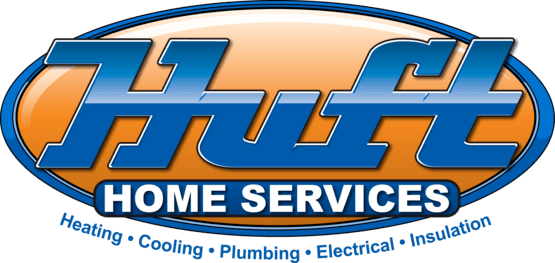When you work from home, you rely on your home’s power like many other property owners don’t. It’s not just a matter of comfort and safety but a means to completing your job and earning your livelihood. However, not all homes are ready and may pose challenges to showing up and being reliable for your company. Consider these critical electrical solutions for people working from home in the Sacramento area to ensure you have consistent power that isn’t breaking the bank.
Ensuring Consistent Power Options
One of the first challenges remote workers face is ensuring consistent and reliable power while trying to work. Every Californian knows the problems encountered with an overwhelmed power grid and disruptions from natural events, but that does not resolve your need if you’re going to work remotely. Fortunately, there are easy systems to help you save money and have more reliable power options for both work and home.
Residential Solar Power
Generating your power is one of the best ways to ensure reliable power throughout the year. You can install a small system that provides enough power for your home office or a whole-house system to ensure your home has power regardless of what’s happening with the power grid. If you generate enough power, you can sell it back to the energy company to help curb the cost when you need to tap into the grid.
Uninterruptible Power Supply
Within your office, you may want to consider implementing an uninterruptible power supply (UPS). This device has a small backup battery to power computer equipment, hard drives, and other critical office equipment. Many UPS devices also have surge-protected outlets built into them to add more protection for your devices.
Electrical Safety
Safety is of paramount concern for every home. Working remotely takes on a whole new meaning because of the extra equipment needed to ensure you can work effectively. Additionally, ensure that your family is protected from the additional equipment and draw it may require.
Surge Protection
Surge protection is one of the first things most remote workers think about for their office. After all, you don’t want a power surge to threaten your ability to produce by destroying a piece of equipment. Evaluate your home office and identify the need for your equipment. It may make sense to install a whole-house surge protection system, depending on your needs.
Proper Circuit Load
Homes are not usually designed with the intent of someone working from home with modern technology, especially if you’re running more than a computer and printer. Unfortunately, you risk significant damage to your equipment and home if you use power strips and outlet extenders. Instead, you need to ensure that the draw on your circuit is not greater than what it’s rated for. If you have significant power needs for your work, consider having an electrician set up a dedicated circuit for your office, or in some circumstances, you may need an isolated circuit for high-draw equipment.
Modernizing Office Wiring
Old homes may not have wiring rated to meet the demands of modern electronics. If you plan to work remotely, you may want to have your wiring inspected and updated to keep your home and office safe.
Outlet Location
You may not always have many options for setting up your home office between your desk or workspace and the other equipment you need. However, when the electrical was installed, it was likely not with this equipment in mind. Consider having an electrician move outlets in your workspace to a more reasonable place to meet your needs.
Child Proofing and Protection
If you have children in your home, your office can be a significant electrical hazard. Keep child safety plugs in any empty outlets. For a more permanent solution, consider replacing the outlet with one that has childproofing built in.
Power Strips and Extension Cords
Extension cords and power strips have become commonplace to help get power where needed. However, they can be dangerous if not used properly around your home office. If you use power strips or extension cord cords, ensure they are still in good condition, and the electrical cables aren’t showing signs of wear or fraying. Additionally, use a single extension cord or power strip. Do not daisy chain them together. Finally, do not plug more in than the strip or the circuit is designed to handle in terms of draw.
Improving Efficiency
With the extra power you’ll consume working from home, it’s important to look for ways to improve your energy efficiency. Options for improving home office efficiency include effectively managing natural light, implementing efficient lighting, and improving home office comfort.
Managing Natural Light
Productivity studies have demonstrated that people feel better about their work and are more productive with natural light. However, that light can also pose problems for sensitive electronics and keeping your home office comfortable. Use blinds when the sun shines directly into the window, especially on southerly-facing windows. Open them in the morning or afternoon before or after the sun hits the windows to allow the natural light into your office without creating significant solar heating.
Office Lighting Options
Besides natural light, it’s essential to have adequate interior lighting. Consider installing recessed lighting if you’re setting up a permanent home office. Consider the amount of light you need to work effectively and if shadows are a concern for your work. Consider using a motion light switch to turn the lights off when you leave the room to help reduce energy consumption. Evaluate what light color best serves your work needs without straining your eyes. If you install new permanent lighting fixtures, work with an electrician to place the lights for the best effect and run new wiring.
Office Comfort Options
If your HVAC system isn’t properly balanced, your office may be too cool or warm compared to the rest of the house. Start by ensuring the vents in your room are open and have adequate clearance. The minimum recommended clearance for supply vents is 6 inches above and around the vent. If it’s still an issue, you may want to consult with an HVAC professional to discuss whether zoning your home is appropriate. Zoning allows you to more tightly control what areas of your home receive conditioned air based on need.
You may want to invest in a ceiling fan for your workspace. During the summer, this makes the air feel cooler without putting more strain on your air conditioner. Over the winter, it pushes warm air back down, providing more comfort without producing more heat.
Property owners around Sacramento have turned to Huft Home Services for the last 20 years when they need home service and maintenance they can trust. Our award-winning team provides a full range of residential electrical services, including breaker panel installation and upgrades, electrical wiring, surge protection, EV charger installation, outlet and switch installation and upgrades, indoor and outdoor lighting installation and repair, and ceiling fan wiring along with heating and cooling installation, maintenance and repair and a wide range of residential plumbing services. Call to schedule a home performance audit with one of our expert electricians today.



